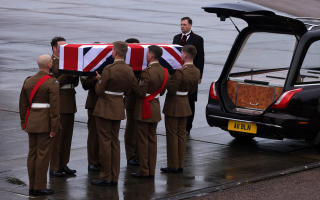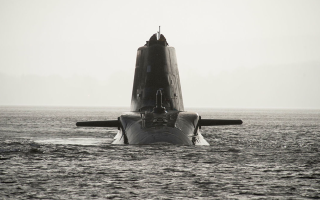Obama Pushes Cameron On Defence Spending
The Prime Minister has declined to commit Britain to spending 2% of its national income on defence, in the long term, in a meeting with the US President.
David Cameron and Barack Obama discussed the issue in talks at the G7 summit in Germany, where President Obama urged the UK to keep to an agreement made with NATO allies.
A Downing Street source said defence spending was “touched on” in the talks and that “The president underlined the importance of the UK and US as the two pillars of NATO, and said he accepted the fiscal challenges but hoped that the UK would find a way to meet it”.
NATO has a long-standing target of spending at least 2% of GDP on defence, but Britain is one of only a handful of members to meet that.
David Cameron helped broker a deal at the NATO summit in Wales, last Autumn, for under-spenders to stop cutting and start spending more, in return Britain and others meeting the target agreed to carry on spending at least 2% on defence.
But as it tries to save billions of pounds and close a budget deficit the government is only promising to keep to that agreement until next spring.
Ahead of their meeting Mr Cameron said he would tell the US President “we've kept our 2% promise - one of the few countries to do it – and we're having a Spending Review in the autumn and we'll announce the results at that time."
Last week the Chancellor cut half a billion pounds defence spending for this year, but the Ministry of Defence said that would not take Britain below the 2% threshold.
Professor Malcolm Chalmers from the Royal United Services institute says it is “touch-and-go”, but that the target could still be met this year given extra spending on Operation Shader against IS, provided the economy does not grow more than expected.
Britain is the second biggest spender in NATO, but the US is worried about the signal that would be sent out if it breached the 2% agreement.
Washington has talked about ‘leadership’ shown by Britain in the alliance, if London failed to honour an agreement it helped broker that would make it difficult to hold other nations to the deal.
David Cameron may also face pressure from his own back-benches ahead of the spending and defence reviews that are expected in the autumn.
At the end of the last parliament more than 25 Conservative MPs backed a commons vote calling on the government to keep spending at least 2% of GDP on defence.
Picture: White House / 2013









